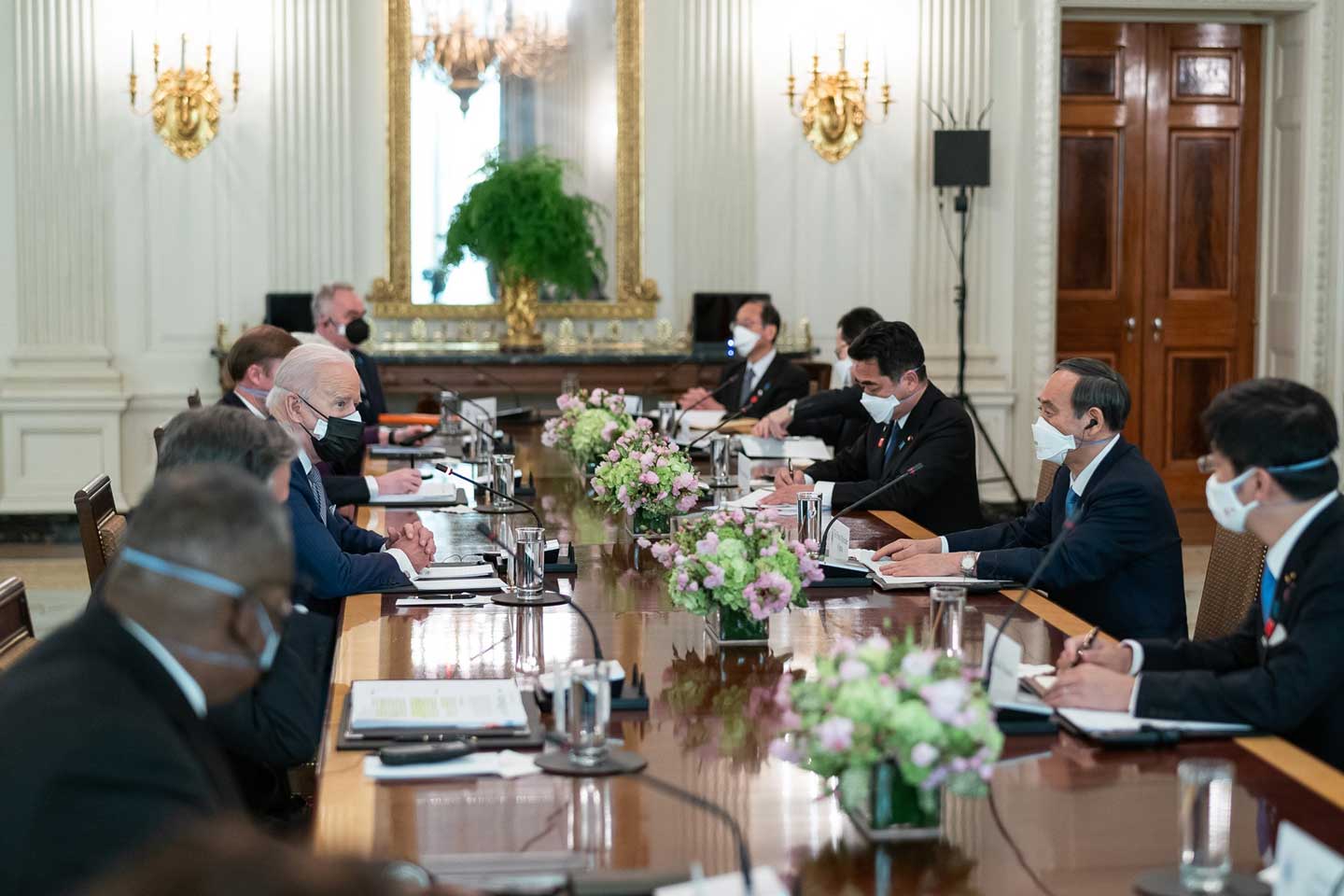BGA Japan Managing Director Kiyoaki Aburaki wrote an update to clients on visit of Japanese Prime Minister Yoshihide Suga to the United States from April 15 to 17. The update explored the significance of Suga’s White House meeting with U.S. President Joe Biden – Biden’s first in-person meeting with a foreign leader since taking office earlier this year.
Context
Prime Minister Yoshihide Suga made his first visit to the United States from April 15 to 17 since assuming office last September, marking U.S. President Joe Biden’s first in-person meeting with a foreign leader in the White House. In a joint leaders’ statement, the two sides emphasized the roles of the U.S.-Japan alliance to promote a free and open Indo-Pacific and expressed concern over China’s assertiveness in the region.
Significance
Biden and Suga announced two new partnerships – the U.S.-Japan Competitiveness and Resilience Partnership and the U.S.-Japan Climate Partnership. The former covers bilateral economic and technological cooperation, including 5G and next-generation mobile networks and management of sensitive supply chains, such those of semiconductors. The latter focuses on addressing climate change and green growth.
The two leaders’ commitments are expected to provide vast new opportunities for U.S. and Japanese companies in developing 5G and next-generation networks, bolstering supply chains and semiconductor production and investing in technology and services to stem climate change.
Suga’s visit marked a symbolic return to face-to-face diplomacy, following 14 months of remote engagement due to the coronavirus pandemic. The meeting allowed the two new leaders to get to know each other, an important milestone as the cultivation of personal trust is fundamental to pursuing the challenging goals to which they committed.
Implications
The trip will be closely watched for its domestic and international implications. Domestically, public support for Suga’s administration has steadily declined since he took power last September, stemming from the periodic resurgence of Covid cases and the slow vaccine rollout, both of which are widely seen as being due to mismanagement by his Cabinet. If Suga loses support in the coming weeks, his reduced backing will trigger uncertainty among his Liberal Democratic Party (LDP) members about whether they want to rely on Suga as party leader to fight the next general election. The LDP leadership election must take place before September 30, when Suga’s term expires, and the lower house election must occur before October 2021, when the lower house chamber term expires.
Internationally, eyes will be on the evolution of the U.S.-Japan cooperation and collaboration on wider issues including China’s conduct in the region. China’s strong, albeit cautious criticism of the joint statement was not surprising given that it marked the first time U.S. and Japanese leaders mentioned the Taiwan issue in writing, covering Hong Kong and Xinjiang as well. More broadly, U.S.-Japan cooperation in areas such as competitiveness and innovation will probably have a major impact on international relations both politically and economically beyond the alliance itself.
BGA’s Japan team will continue to keep you updated on developments in Japan at home and abroad as they occur and assess the implications for companies and other stakeholders.

Managing Director
Kiyo understands the Japanese business community inside and out from his three decades working for Japan’s most powerful business organization, Keidanren. He covers international trade and investment, defense and aerospace, information technology, entrepreneurship, deregulation and data privacy policy. He also played a leading role in developing and implementing political strategies for the private sector. Kiyo has led Keidanren’s strategic international initiatives since 2013, and most recently headed up the federation’s international engagement. He worked closely with former Prime Minister Yasuo Fukuda to establish Japan’s Track 1.5 dialogues with the United States and China. The dialogues produced important results by strengthening ...
Read More


























